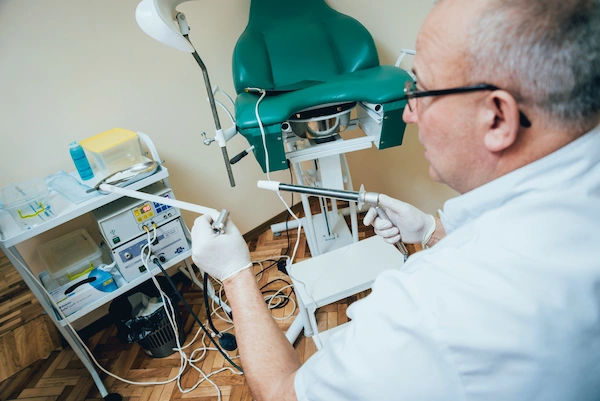Peripheral Neuropathy Overview and Management
Learn about peripheral neuropathy, its symptoms, causes, diagnosis, and effective management options, including medical treatments, lifestyle changes, and dietary tips.


Peripheral neuropathy is a condition that affects the nerves outside the brain and spinal cord, leading to pain, numbness, and weakness; usually in the hands and feet. It can significantly impact daily life, making simple tasks like walking or holding objects difficult. If you or a loved one is experiencing symptoms, understanding the condition and its management can help improve quality of life.
What is Peripheral Neuropathy?
Peripheral neuropathy occurs when the peripheral nerves; responsible for sending signals between the central nervous system (brain and spinal cord) and the rest of the body—are damaged. These nerves control movement, sensation, and automatic functions like blood pressure and digestion.
Common Symptoms
Symptoms vary depending on which nerves are affected but often include:
- Numbness, tingling, or burning in hands and feet (like "pins and needles")
- Sharp, stabbing, or throbbing pain
- Muscle weakness or difficulty moving limbs
- Loss of coordination, leading to falls
- Extreme sensitivity to touch
- Digestive issues, dizziness, or bladder problems (if autonomic nerves are affected)
If you notice these signs, consult a doctor for proper diagnosis and treatment.
What Causes Peripheral Neuropathy?
Several factors can damage peripheral nerves, including:
1. Diabetes (Diabetic Neuropathy)
High blood sugar levels over time can harm nerves, making diabetes the most common cause. Keeping blood sugar under control is crucial.
2. Injuries or Trauma
Accidents, fractures, or repetitive motions (like typing) can compress or damage nerves.
3. Infections & Autoimmune Diseases
Conditions like shingles, HIV, Lyme disease, or autoimmune disorders (e.g., rheumatoid arthritis) may trigger neuropathy.
4. Vitamin Deficiencies
Lack of B vitamins (B1, B6, B12), vitamin E, or folate can impair nerve function.
5. Toxins & Medications
Exposure to heavy metals (lead, mercury) or certain chemotherapy drugs may contribute.
6. Alcohol Abuse
Excessive alcohol consumption can lead to nerve damage due to poor nutrition and toxicity.
How is Peripheral Neuropathy Diagnosed?
Doctors use several tests to confirm neuropathy:
- Physical examination (checking reflexes, muscle strength, and sensation)
- Blood tests (to detect diabetes, vitamin deficiencies, or infections)
- Nerve conduction studies (NCS) & Electromyography (EMG) (measures electrical activity in nerves and muscles)
- Skin or nerve biopsy (in rare cases)
If you suspect neuropathy, book a consultation with a neurologist through Apollo 24|7 for a thorough evaluation.
Managing Peripheral Neuropathy
While some nerve damage may be irreversible, early treatment can slow progression and relieve symptoms. Here’s how you can manage it:
1. Medical Treatments
- Pain relievers (OTC or prescription medications like gabapentin, pregabalin)
- Topical treatments (capsaicin cream or lidocaine patches)
- Antidepressants (some help with nerve pain)
- Physical therapy (strengthens muscles and improves mobility)
2. Lifestyle Changes
- Control blood sugar (if diabetic) – Monitor levels regularly.
- Quit smoking & limit alcohol – Both worsen nerve damage.
- Exercise regularly – Improves circulation and nerve function.
- Protect your feet – Wear comfortable shoes, check for injuries daily.
3. Dietary Adjustments
- Eat a balanced diet rich in B vitamins (whole grains, eggs, leafy greens).
- Include omega-3 fatty acids (fish, flaxseeds) to reduce inflammation.
- Stay hydrated – Dehydration can worsen symptoms.
4. Alternative Therapies
- Acupuncture – May help reduce pain.
- Massage & Yoga – Improves circulation and relaxation.
When to See a Doctor?
Seek immediate medical help if you experience:
- Sudden numbness or weakness
- Loss of bladder/bowel control
- Severe pain affecting daily life
- Early diagnosis and treatment can prevent complications like infections or falls.
Final Thoughts
Peripheral neuropathy can be challenging, but with the right care, symptoms can be managed effectively. If you suspect nerve damage, don’t ignore the signs; consult a specialist today.
For expert advice and personalized treatment, schedule a consultation with Apollo 24|7’s neurology team and take the first step toward better nerve health.
Consult an Neurologist for the best advice




